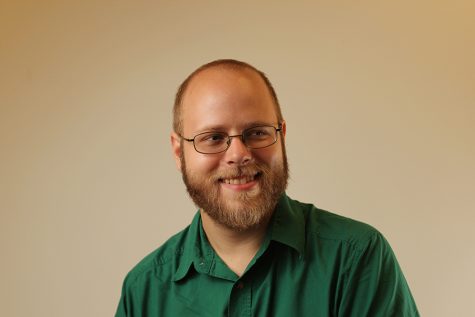Novice competitor earns award
Mar 1, 2017
The single competitor from Contra Costa College won the Top Novice award at the forensics speech competition at Las Positas College on Feb. 4.
Jose Chavez, the speech and debate team member who won, said, “I was considered a novice because it was my first competition.”
Chavez said, “I was competing against open students — from other colleges and four-year universities.” Those schools included San Jose State, UC Berkeley, Cal State-Chico and San Francisco State.
Speech professor Joseph Carver, who coaches the speech and debate team, said, “Most of the competitors were in the open category, who are expected to compete at the highest level and have some mastery of many skills regarding substance, research and style.”
Normally novices like Chavez compete against other novices, but since there were very few novices the newcomers and veterans competed together.
Carver said, “The reason I’m so proud of him is that he was competing against seasoned competitors.”
Chavez said he presented his speech, in the informative speech category, on the Mercy Care suicide prevention app.
Carver said, “The amount of hard work and dedication that Jose has shown, being a strong forensics competitor, there’s a lot more to it than just being able to ‘speak pretty.’”
The speakers are guaranteed at least two chances to reach the finals, Carver said. The first round was at 9 a.m., the second at 2:30 p.m. Competitors are separated into different groups of five or six, presenting their effort to a different judge in each round.
Chavez said, “They sounded like they really knew what they were doing. It helped to have other people go up before me. That way I could see their mistakes.”
Several other members of the speech and debate team traveled to Las Positas to observe, but not compete.
Carver said, “I made the coaching decision that they needed more time to prep. Jose has been working on his speech since late last semester.”
He said CCC had “what you might call — a small lineup.”
Speech and debate team member Johana Arroliga said she made the trip because, “I wanted to get a feel for it (and see) if it was something I could do.”
About Chavez’s performance, she said, “I felt he did really well. He had a good flow, and tone of voice.” She said Chavez was one of only two people she saw not using any cue cards.
Carver said, “The judges ding points for using cue cards.”
Having the speech fully memorized always helps one’s score, Arroliga said.
Arroliga, Carver and Chavez all said that under pressure it’s hard not to rush through a speech.
Chavez said, “I took two to three months writing and memorizing (the speech), but at the tournament the nerves kicked in.”
He said, “I messed up on the first round. I left out a huge section of the speech.”
His speech was supposed to be nine minutes and thirty seconds long, but in his first performance he took only seven minutes and thirty seconds. The speeches are supposed to be between eight and 10 minutes long.
He did better on his second chance, taking eight minutes and thirty seconds.
Arroliga said, “The biggest thing is getting over that little fright you get. It’s like a rush. It’s crazy.”
Carver said, “Everyone who has competed in forensics knows that feeling, walking out and thinking ‘I can’t believe I did that.’ Not dwelling on it is an important skill to develop.”
The list of finalists was posted at 5 p.m., and the awards given at 7:30 p.m., revealing Chavez’s victory.
Chavez said, It felt good having them say my name, coming from Contra Costa.”


